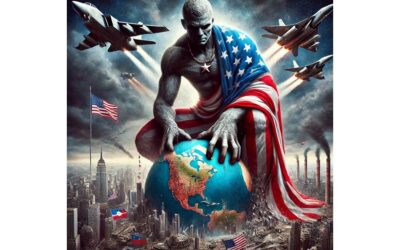A Reply to Michael Mostyn, and Canada’s UN Vote
By David Kattenberg
In response to 17 “anti-Israel” resolutions routinely presented at the United Nations this time of year, the B’nai Brith Canada CEO laments that Canada only voted against 16 of them.  Michael Mostyn’s commentary in the Dec. 3 edition of the CJR is both factually incorrect and disingenuous.
Michael Mostyn’s commentary in the Dec. 3 edition of the CJR is both factually incorrect and disingenuous.
Pretty solidly pro-Israel, were it not for that one “yes” vote affirming the Palestinian right to self-determination. That vote was “all the more galling,” writes Mostyn, given Canada’s traditional commitment to the “cause of peace.”
But Mostyn quickly dismisses the idea. Israel has long recognized the Palestinian people’s right to self-determination, he said, and has pitched numerous “generous” offers.
Really? Nothing has been more central to Benjamin Netanyahu’s interminable political career than thwarting the creation of a Palestinian state. Among Netanyahu’s most recent pronouncements, at a Likud conclave last summer: “[In] no constellation will the government or the Knesset recognize the principle of establishing a Palestinian state.” Netanyahu has said this repeatedly over the years.
Mostyn twists it around: “Tragically,” he wrote, “the Palestinian leadership consistently rejected [Israel’s offers] because – bottom line – they refuse to accept the idea of a Jewish state.”
This is false. The PLO accepted Israeli sovereignty on 78 percent of Palestinian lands back in 1988, in Algiers. It even acknowledged the Jewish people’s ancient narrative – a huge concession, reconfirmed in the Oslo Accords, that Israel has never matched.
Instead, under the guise of occupation, Israel has effectively annexed 60 percent of the remaining 22 percent slice, and colonized it, in breach of the UN Charter and Fourth Geneva Convention.
Of course, Mostyn and his lobby group’s lawyers fiercely deny that Israel occupies “Judea” and “Samaria.” Their theories have been debunked, and Israel’s settlements have been declared unlawful in a dozen UN Security Council resolutions.
Mostyn claims, falsely, that UN Security Council Resolutions 242 (1967) and 338 (1973) call for “negotiations between the parties to determine the status of the territories.”
In fact, UNSC 338 called for “negotiations” between the parties “aimed at establishing a just and durable peace.” UNSC 242 affirmed the “inadmissibility of the acquisition of territory by war” [what Israel had just done in the 1967 Six-Day War], and the duty of UN member states to abide by Charter Articles 1 and 2, namely, the principles of “justice and international law” and “equal rights and self-determination of peoples.”
Neither resolution made reference to the “status of the territories,” now a matter of virtually universal consensus. Resolution 242 did call for Israel’s withdrawal from “territories occupied in the recent conflict,” an inconvenient legal fact Mostyn ignores.
Canada’s policy on Palestine is clear: A) Israel is an occupying power in the West Bank, East Jerusalem, the Golan Heights and Gaza; B) Israel’s settlements are illegal: and C) settlements impede the creation of a viable Palestinian state that Canada says is essential.
But forget about Canadian policy. The UN Charter and its binding covenants oblige Canada to “respect and ensure respect” for the law in “all circumstance.” The fact that it doesn’t – that it actually invests in Israel’s unlawful enterprise – is something Mostyn knows well but which doesn’t seem to bother him at all.
It is Israel’s annexationist ambitions, not “peace” policy, that Mostyn cherishes the most. According to Mostyn, Canada’s vote in support of Palestinian self-determination constituted a shameful denial of the same right to the Jewish people. Here he gets to the point. “Absurdly,” he writes, the lands within which Palestinians supposedly enjoy self-determination include “the holiest sites in Judaism: the Western Wall and Temple Mount, plus the Jewish Quarter of the Old City; and everything else, east to the Jordan River.”
In other words, Mostyn thinks all these lands belong to Israel, “the world’s only Jewish state.” He doesn’t say, though clearly believes, that Jews are indigenous to these lands, and that Palestinians are not. This is what Israel thinks, and B’nai Brith is Israel’s “staunch defender.”
Not a very righteous stance for someone claiming to represent Canada’s Jewish community, of which I am a part. He should declare himself more honestly.
David Kattenburg, who lives in Winnipeg, is Jewish but doesn’t consider himself indigenous to the Land of Israel. He belongs to a group called Scientists for Palestine. He is the plaintiff in a case, now under appeal by the Federal government, involving the labeling of wine products from West Bank Jewish settlements.
Adapted from: https://canadianjewishrecord.ca/2020/12/09/a-reply-to-michael-mostyn-and-canadas-un-vote/
DISTRIBUTED BY PAJU (PALESTINIAN AND JEWISH UNITY)
PAJUMONTREAL.ORG/EN







